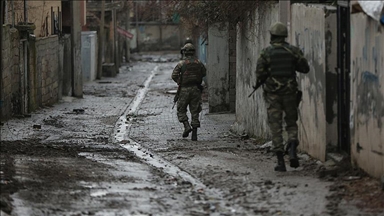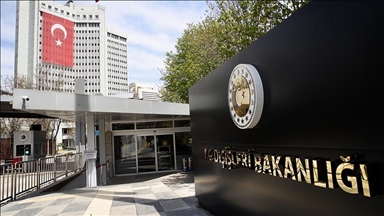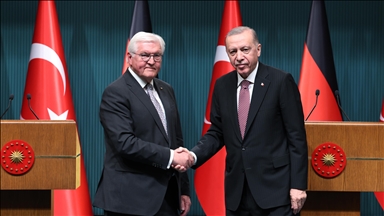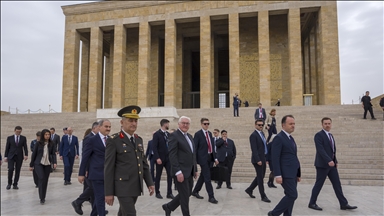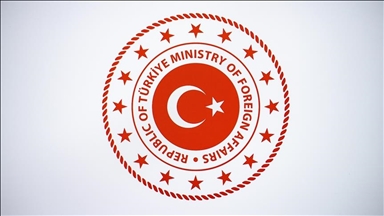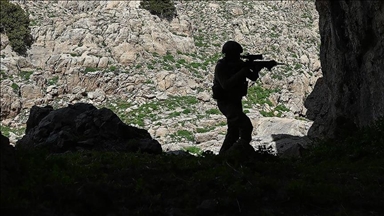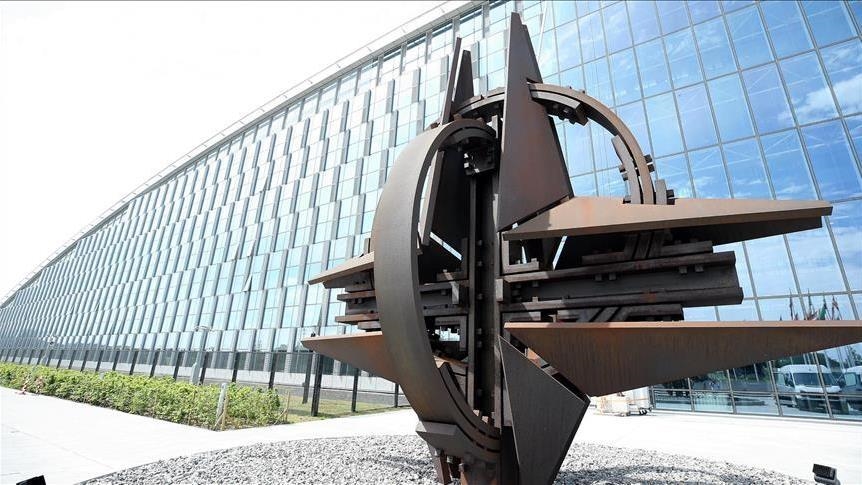
The author is a political science and international relations professor at Halic University in Istanbul.
ISTANBUL
In three questions, Aylin Unver Noi evaluates Sweden and Finland's NATO accession process after Türkiye decided to ratify Finland's bid in parliament for Anadolu's Analysis Department.
- How can Türkiye's green light for Finland's NATO bid be evaluated?
Finland decided to become part of NATO after Russia launched a war on Ukraine, which stirred fears in Finland and caused an increase in support for joining the military alliance. It is not difficult to understand its legitimate security concerns since Finland shares the longest EU border (1,340 kilometers or 833 miles) with Russia and has been invaded by Moscow three times in its history since 1918.
Finland was originally invited to join the alliance together with Sweden. The two Baltic states together applied for NATO membership by abandoning their non-aligned status on May 18, 2022. Since then both states have been waiting for ratification of their membership by all NATO member states.
Last Friday, Türkiye and Hungary announced that they have decided to initiate the ratification process for Finland in their parliaments. With this decision, Ankara and Budapest removed the barrier to Helsinki's joining the alliance whereas they left Stockholm out of this process.
The trilateral memorandum that paved the way for Swedish and Finnish membership in NATO was signed between Türkiye, Sweden, and Finland at a NATO summit in Madrid on June 29, 2022. As a member of NATO for 71 years, Türkiye has always supported NATO's open-door policy and its enlargement with new members.
- Why was Sweden's NATO bid not approved by Türkiye?
Türkiye clearly expressed its reservations about NATO's Scandinavian enlargement and stated that it would support the membership of Sweden and Finland if certain conditions were met. The Baltic states agreed to meet these conditions with the trilateral agreement.
By signing this memorandum, Sweden and Finland agreed to stop their support for terrorist organizations YPG/PKK, which is a Marxist-Leninist terror organization, and FETO, which is an illegal organization aiming to establish a new order by exploiting religion. They also agreed to extend their full support to Türkiye against threats to its national security, lift direct and indirect national arms embargoes, and conduct future defense export from Sweden and Finland to Türkiye in line with alliance solidarity and Article 3 of the Washington Treaty. Sweden and Finland also agreed to provide their support for the fullest possible involvement of Türkiye in the existing and prospective initiative of the EU's Common Security and Defense Policy, including Türkiye's participation in the Permanent Structured Cooperation projects.
While Finland fully implemented its commitments to Türkiye that were stated in the trilateral memorandum, Sweden has failed to do so. Stockholm has close ties with terrorist organizations such as PKK and FETO. It continued to allow PKK's protests and provocative actions in the country and showed reluctance in the extradition of terrorists. Actually, the hope was raised when Sweden confirmed the Terrorist Offenses Act which enables the government to prepare for further tightening of counter-terrorism legislation. However, the PKK's provocative actions hinder Sweden's membership in NATO.
Another provocative action was carried out in Sweden by Rasmus Paludan, a far-right Danish-Swedish politician. Paludan burned the Quran, Islam's holy book, outside the Turkish Embassy in Stockholm. This incident took place before the scheduled visit of Swedish Defense Minister Pal Jonson to Ankara for a meeting with Turkish National Defense Minister Hulusi Akar. This incident further complicated Sweden's prospective membership in NATO.
- How do international actors approach the current situation of these two countries?
These provocative actions and their timing have raised a question about whether Russia is involved in the incident. It is not a secret that the two countries' decision to become part of NATO makes Russia uncomfortable. The Russian Foreign Ministry warned that Sweden and Finland's accession to NATO will cause serious damage to their bilateral relations with Russia and Moscow will be forced to take retaliatory steps. This is why any provocative action in these countries would help Russia in reaching its aim to halt the expansion of NATO.
These provocative actions and their possible link to Russia should be taken into account by the US Congress. Rather than explicitly and directly linking the F-16 sale to Türkiye with the NATO accession bids of Sweden and Finland, the US Congress should focus on convincing Sweden to fully implement its commitments in the trilateral memorandum.
There is still hope for signing off Sweden's bid before the 2023 NATO summit in Lithuania. Realization of this depends on the steps taken by Sweden to address Türkiye's security concerns and on whether Sweden will stand in solidarity with Türkiye by implementing its commitments in the trilateral memorandum related to not harboring terrorists. Otherwise, Sweden and Finland will not be able to join NATO at the same time. It seems that this will not stop Finland's membership process to join the alliance alone since the Finnish parliament passed a law that enables its membership as soon as NATO's 30 member states ratify Finland's accession protocol.
*Opinions expressed in this article are the author's own and do not necessarily reflect the editorial policy of Anadolu.
Anadolu Agency website contains only a portion of the news stories offered to subscribers in the AA News Broadcasting System (HAS), and in summarized form. Please contact us for subscription options.


